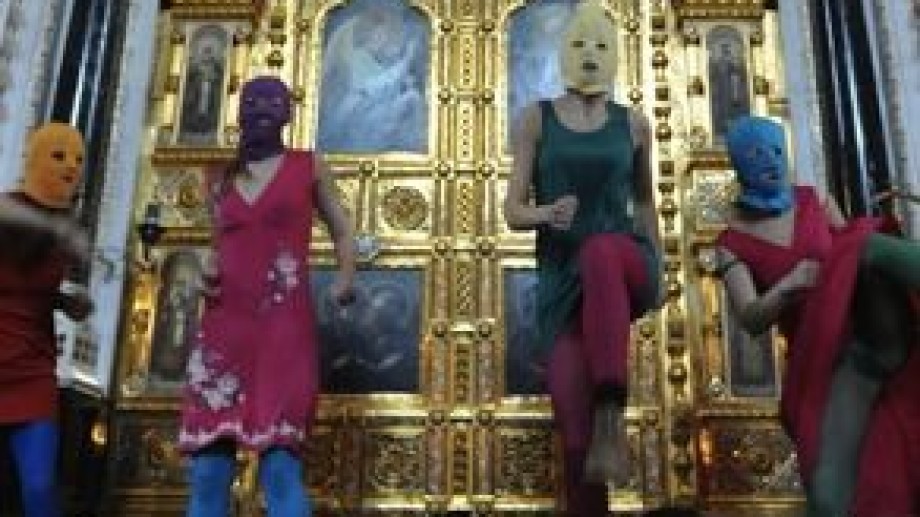
A scene from Maxim Pozdorovkin and Mike Lerner's Pussy Riot: A Punk Prayer.
Condemnation from officials worldwide and public statements from the likes of Madonna, Sting and Paul McCartney, as well as a documentary that played at Sundance and the recent Human Rights Watch Film Festival at Film Society, has failed to move the Russian government to release two jailed activists from feminist art collective/band Pussy Riot.
Last week, a court said that the two jailed activist, Nadezhda Tolokonnikova and Maria Alyokhina, had not repented after singing a protest song against President Vladimir Putin in Moscow's main cathedral. Both women are due for release next year, but were eligible for parole. The drama was captured by filmmakers Maxim Pozdorovkin and Mike Lerner whose 2013 doc Pussy Riot: A Punk Prayer shows the incident that lead to their arrest and their subsequent trial.
In February 2012, members of the punk band Pussy Riot entered Moscow's revered seat of Russian Orthodoxy, Christ the Saviour Cathedral, wearing their trademark colorful balaclavas (think brightly colored ski masks) and belted out a noisy 40-second song called a “punk prayer protest” near the altar. After being detained for wearing “inappropriate” sleeveless dresses, Nadia, Masha and Katia were accused of offending believers' sentiments and stood trial. They quickly became a cause célèbre around the world.
The ensuing backlash from Russian Orthodox activists and supporters of Putin thrust the young women before the world's cameras in a trial criticized as unfair. The government dismissed Pussy Riot as hooligans.
Commenting on their detention and the reasons behind it, co-director Mazim Pozdorovkin told FilmLinc Daily ahead of his film's New York debut at the Human Rights Watch Film Festival: “A new law was passed that is being called 'the Pussy Riot law,' which basically criminalizes offending the feelings of believers, so what they were being charged with was a hate crime. But right now there's an appeal that applying that charge isn't really appropriate. In the short term, the establishment has rallied their conservative base to their cause. Xenophobic sentiment is also being raised by saying that Orthodoxy is under some kind of attack, which of course it isn't. The Patriarch was also suffering some P.R. disasters at the time.”



